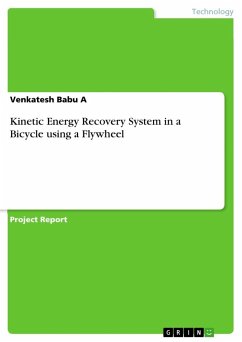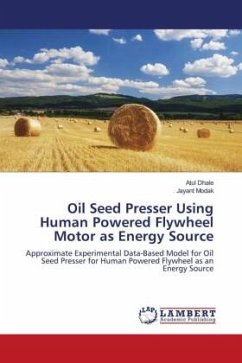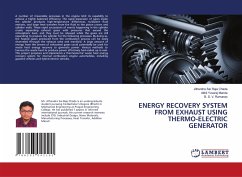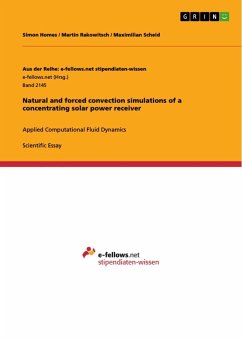Project Report from the year 2016 in the subject Engineering - Mechanical Engineering, grade: 10.00, , course: BE MECHANICAL, language: English, abstract: Natural resources conservation has become a requirement in today's world, mainly in the area of new technology. In many rolling applications maximum energy is lost during deceleration or braking. This problem has been fixed with the introduction of regenerative braking.The Kinetic Energy Recovery System (KERS) is a system for recovering the moving vehicle's kinetic energy under braking and also to utilize the usual loss in kinetic energy. When riding a bicycle, a great amount of kinetic energy is lost while braking, making start up fairly difficult. Here we used the mechanical kinetic energy recovery system by means of a flywheel to store the energy which is normally lost during braking, and reuse it to help propel the rider when starting. The rider can charge the flywheel when slowing or descending a hill and boost the bike when accelerating or climbing a hill. The flywheel increases maximum acceleration and can perform pedal energy savings during a ride where speeds are between 6 and 5 kmph.
Hinweis: Dieser Artikel kann nur an eine deutsche Lieferadresse ausgeliefert werden.
Hinweis: Dieser Artikel kann nur an eine deutsche Lieferadresse ausgeliefert werden.








